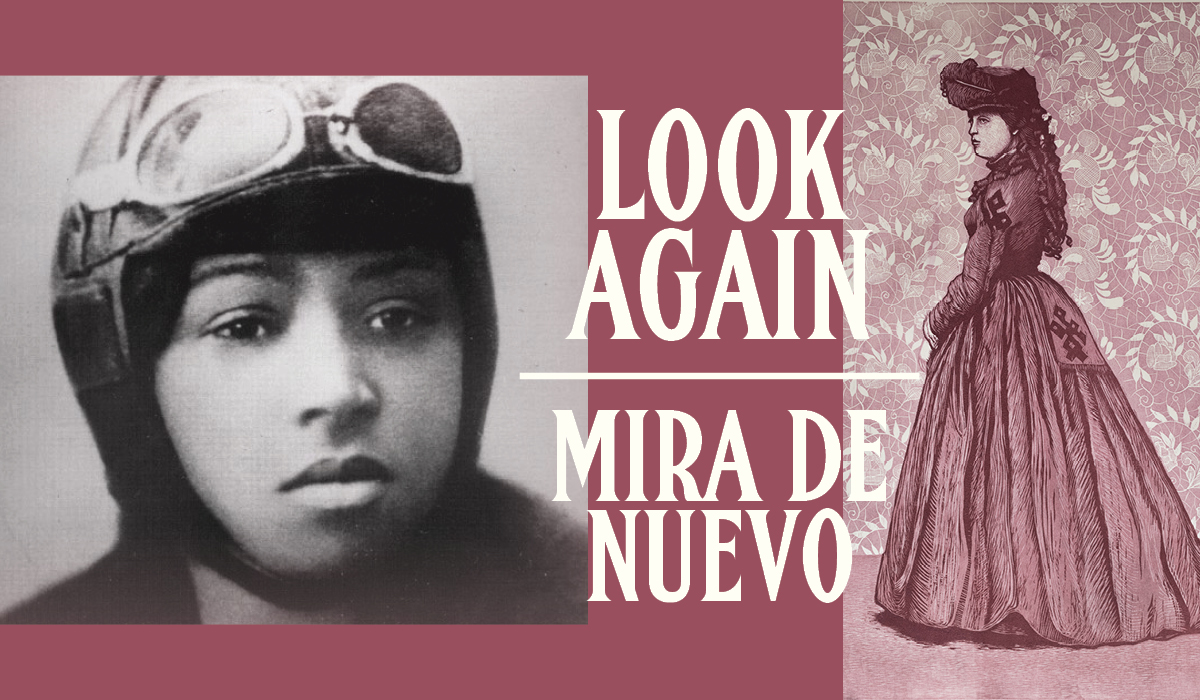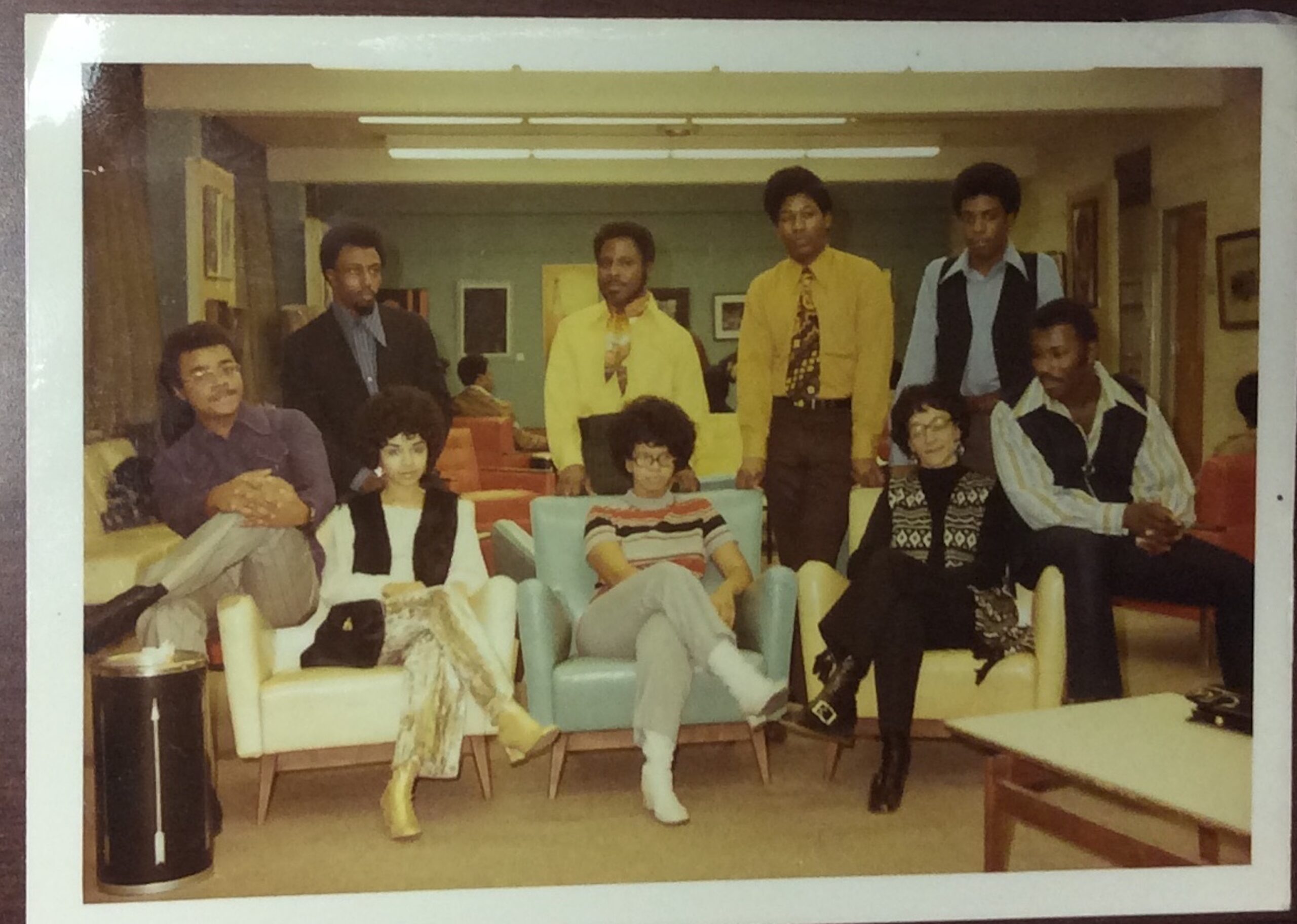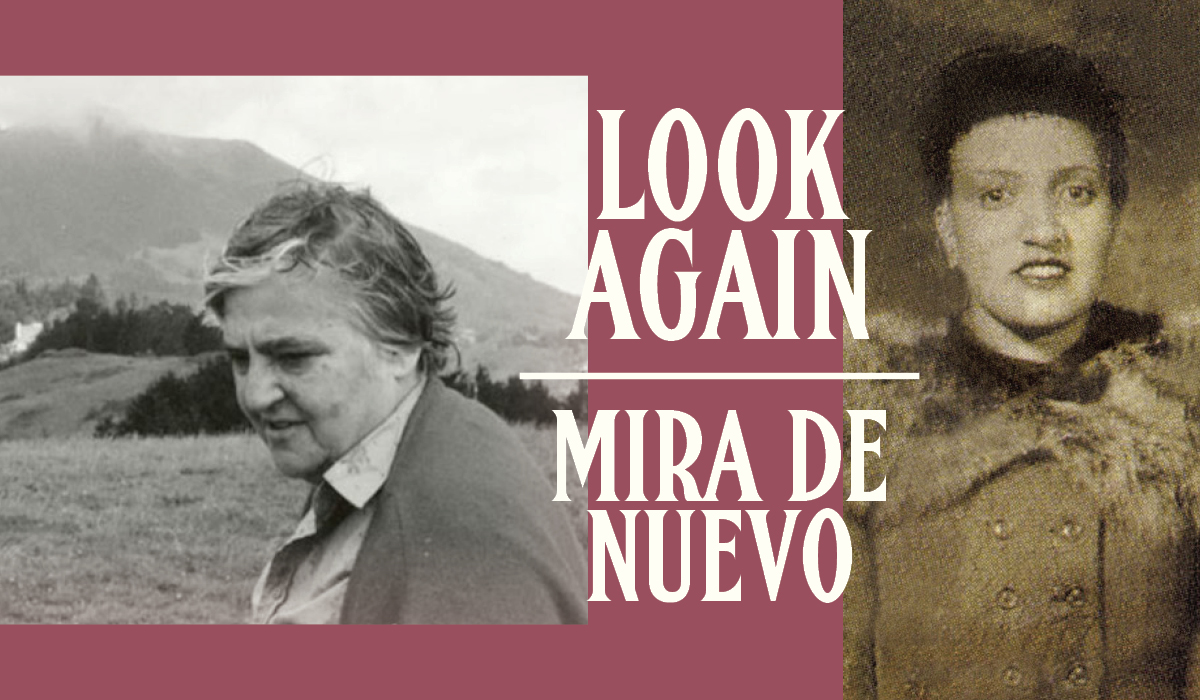
Look Again: Etel Adnan and Henrietta Lacks
Look Again: Portraits of Daring Women by Julie Lapping Rivera is an homage to exceptional, pioneering women working across centuries. In a series of hand-carved, woodcut and collage prints, Leverett-based artist Julie Rivera (American, b. 1956) highlights the lives and achievements of women who defied the status quo. Each print is accompanied by a poem, written specifically for the series, by local and international women poets.
Look Again is sponsored by the Community Foundation of Western Massachusetts
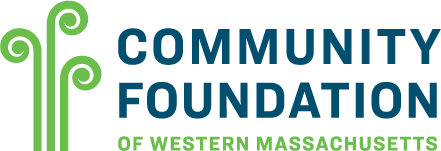
After a lifetime of recognition for her writing, Etel Adnan (1925 – 2021) received acclaim for her visual art when she was 96. A collection of the artist’s bright, abstract paintings was exhibited at the Guggenheim Museum in New York City, opening only a month before her passing. Widely considered a “Renaissance woman,” Adnan expressed her ideas through multiple vocations during her lifetime, including poetry, essay and novel writing, tapestry weaving, painting, and sculpture. In her chosen medium, the Lebanese American spoke out against injustice, protesting the invasion of Vietnam and France’s colonial rule in Algeria. Reflecting on her work, Adnan stated, “it seems to me, I write what I see, paint what I am.”
Etel Adnan
by Thérèse Soukar Chehade
You said “identity is your prison” and roamed the world borderless, art your harbor. You said “poets transcend language,” and languages flowed in you like a river. A polyglot exile who understood that all is translation, you let the wind enter your porous skin, shift the shimmering light into new constellations. A distillation. In motion you sank roots and sang “we’re rhythms,” extending your hands for the world to fall into your open palms. Algeria, Vietnam, Beirut; the gasps of Arab nations trying to free themselves from the clutches of tyrants broke your heart. You were of the pen and brush; with them you fashioned order, merciful, out of the unbearable. “The dream has no walls.” You called it love.
I, daughter of the nation-state carved out by cold-blooded giants from the empire that saw your beginnings, bow to the tapestry you wove out of the many threads of your life. The languages that inhabit me refuse to talk to each other, the threads “disappear in the wanderings.”

Henrietta Lacks (1920 – 1951) received no compensation from the researchers, institutions, and companies that turned a profit from harvesting her cells. The great-great-granddaughter of a slave, Lacks arrived at John Hopkins Hospital in 1951 for a procedure to remove a mass from her cervix. Unlike other cancerous cells, Lacks’ specimen survived outside the human body and multiplied exponentially, becoming the most prolific cell line in biology. In the coming years, her “HeLa” cells, named for the first two letters of her first and last name, became integral to treatments for hemophilia, herpes, influenza, and leukemia. Despite the patents that were made from her cells, Lacks’ family was not informed, nor did they consent, to their use. In 1973, the wife of Lacks’ son discovered HeLa was being used in laboratories. As described in The Immortal Life of Henrietta Lacks by Rebecca Skloot, which brought attention to the injustice of Lacks’ story, she rushed home to her husband, exclaiming, “part of your mother [is] alive!”
HeLa: Stolen Gifts
by Delores Brown and Janine Roberts
She did not want immortality,
just life. Johns Hopkins, decades ago
cells pilfered, slashed from her cervix,
dropped onto clots of chicken-blood.
As they doubled each day; named HeLa.
Hennie, heartbeat of her clan –
bein’ with her was like bein’ with fun.”
Last goodbyes – her five children on
a small patch of grass as she sobbed —
pressed face, hands, to hospital glass.
Motherless days, months, years.
Daughter – longing – nails painted
fire-engine red like her mother’s;
lifetime quest for answers. Son,
in fury, “Them cells were stolen.”
No permission given – “50 million
metric tons” grown and used in labs
worldwide. Family uncompensated.
We all have benefited: Gene mapping,
new chemos, vaccines – polio and COVID.
How do we thank you dear Hennie?
Note from the Poets: With much appreciation to Henrietta’s family for telling her story and theirs to Rebecca Skloot. All quotes and details are from the superb book by Skloot, “The Immortal Life of Henrietta Lacks”.
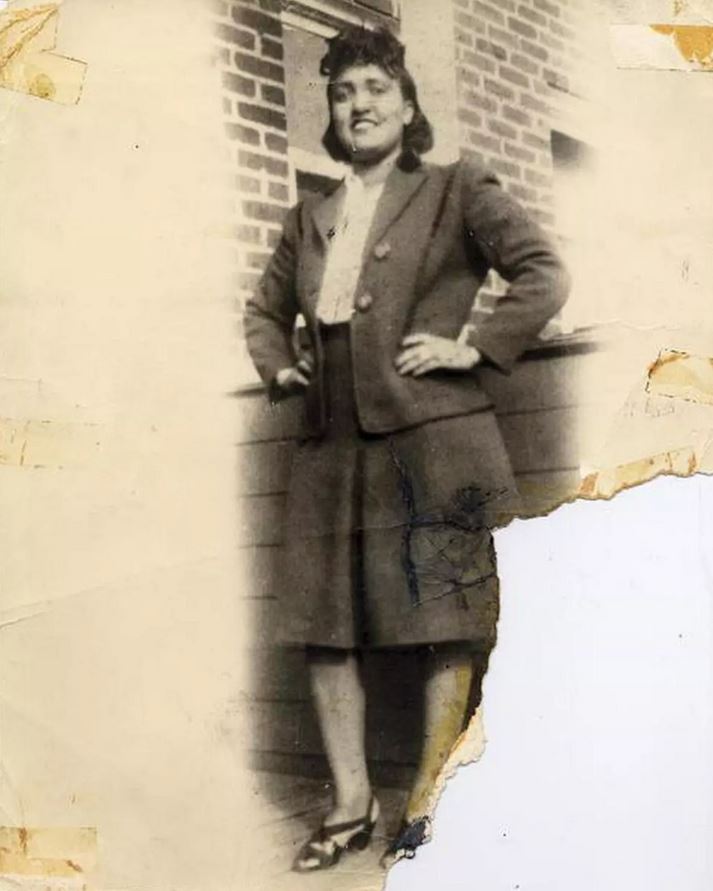
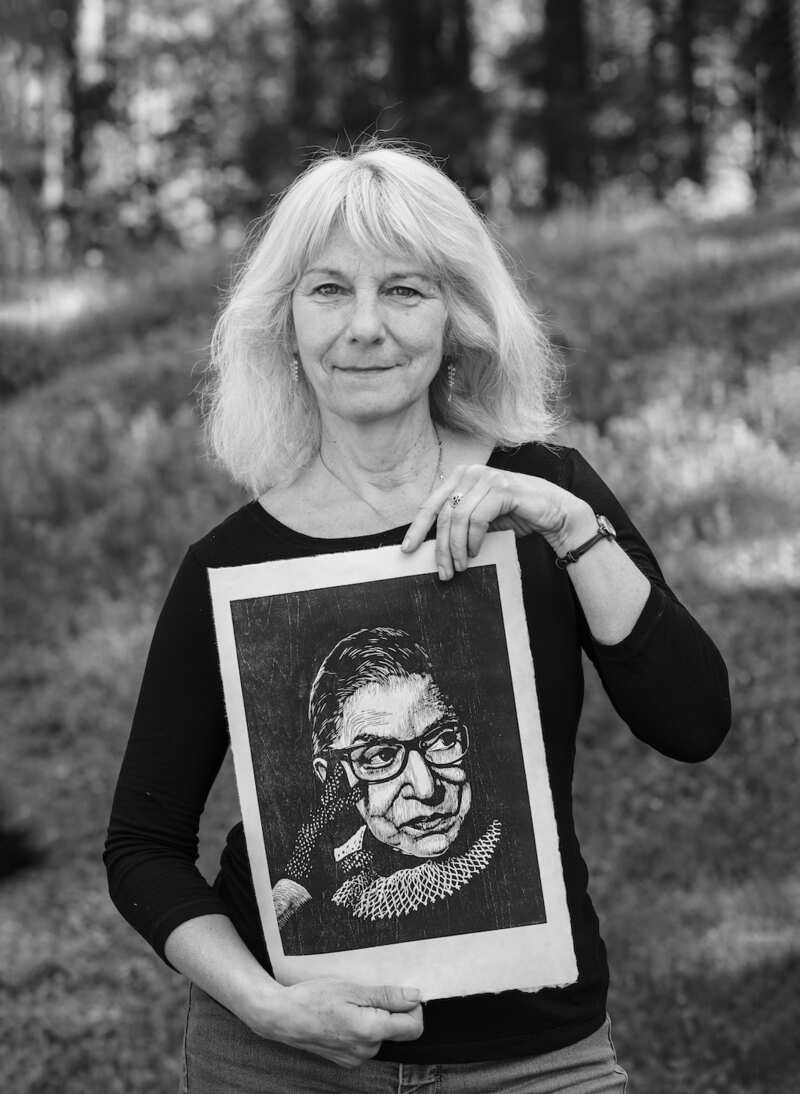
About the Artist
Julie Rivera is inspired by the meditative practice of woodcut printmaking. She began her career in New York, working as a teaching artist with the Studio in a School Association, the Museum of Modern Art, and the Lincoln Center Institute. Rivera earned her MFA in Painting from Pratt Institute and her BFA in Printmaking from the University of Massachusetts, Amherst. She is a New York Foundation for the Arts Fellowship recipient in Drawing and received grants from the New York Foundation of the Arts, the National Endowment of the Arts, and the Massachusetts Cultural Council. Rivera is a Leverett-based artist. She teaches printmaking at Smith College and at Zea Mays Printmaking in Florence, MA.
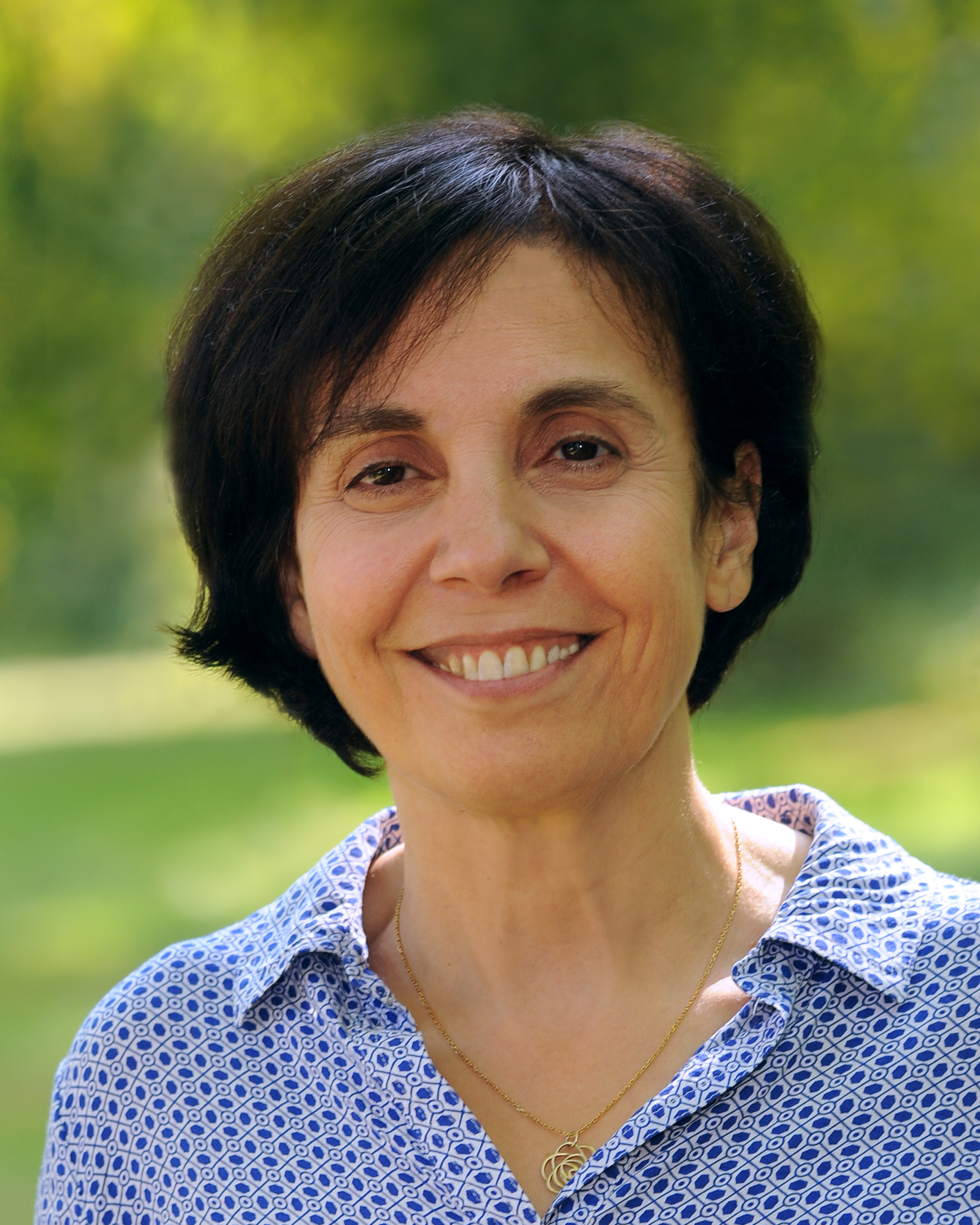
About the Poet
Thérèse Soukar Chehade is an American author based in Western Massachusetts. Her first book, Loom: A Novel (Syracuse University Press, 2010), won the 2011 Arab American Book Award. Her second novel, We Walked On (Regal House Publishing, 2024) is forthcoming.


About the Poets
Delores Brown is a graduate of Temple University with a B.A. in Radio Television and Film and M.Ed. in Educational Media. While she has spent most of her professional career in libraries, she maintains an avid interest in the performing arts and filmmaking. Her most recent project is a biographical documentary with Hela: Stolen Gifts, co- author, Janine Roberts.
Janine Roberts, Ed. D., is President of the American Family Therapy Academy and professor at the University of Massachusetts, Amherst. She is the author of Tales and Transformations: Stories in Families and Family Therapy (Norton, 1994) and coauthor of Ritual for Our Times: Celebrating, Healing, and Changing Our Lives and Our Relationships (Jason Aronson, 1998).
Featured photo of Etel Adnan courtesy of Simone Fattal


